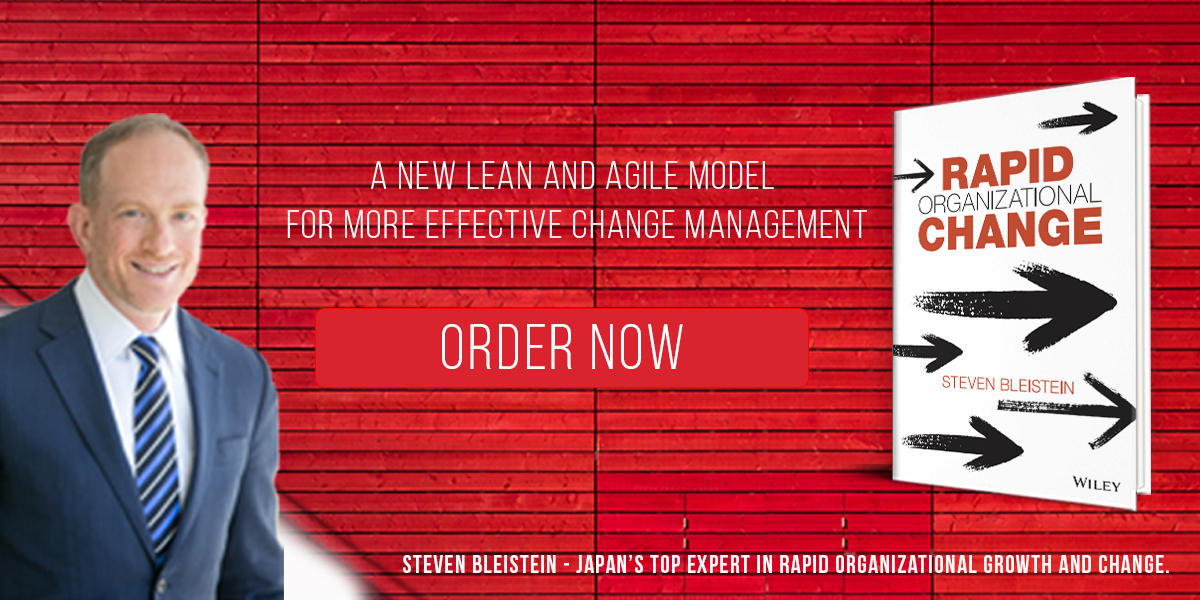[:en]
The key to rapid culture change in any organization is process, not people. First focus on changing processes. Attention to people comes later.
For example, in working with a leadership that was having difficulty in coming to consensus and making decisions in a timely manner, I asked them to try a process I had developed. Unconvinced, they humored me and gave it a try. As a result, they worked through a list of seventeen strategic issues requiring decisions in two hours. Previous efforts had taken weeks with no result. The CEO and many of the managers had ascribed cause to cultural and communication issues, or otherwise to personalities of certain individuals in the group. Yet simply changing processes fixed most issues right away.
Having tried the new process that works, most the managers on the leadership team were eager to repeat it for other decisions, and teach it to staff so that it may be used throughout the organization. That will change behaviors around decision-making all over the company, effectively changing the culture. There was no need to convince people of new values, change mindset, embark on elaborate training programs, or move people around or out. All it took was convincing the managers to try a new process.
Nothing is more persuasive than success, and that takes care of the rest. Share on X
Some individuals simply won’t take up a new process. There are only three causes for a performance gap:
- “I don’t know how!”
- “I don’t want to!”
- “Even if I wanted to, I can’t!”
For each cause, the treatment is different. “I don’t know how!” is remedied with education. “Even if I wanted to, I can’t!” is remedied by removing structural impediments, conflicting policies or processes, or providing sufficient resources. “I don’t want to!” is the most insidious cause. People act in their own perceived best interests. Find out what that is, and address it, or alternatively move the person out.
Effecting culture change by focusing on people first can be like trying to boil the ocean. Yet, if you can identify behaviors key to the culture you want to create, change processes that result in that behavior. If the processes work, most people will take them up. The processes will become the norm in the organization. For the individuals who don’t take to the new processes, identify cause and use the appropriate treatment. In doing this, you will achieve steady, rapid progress in changing the culture of your organization.
For rapid cultural change, focus on process first, then on people in a second stage.
For most people, a process that works is all that is needed.

[:ja]
企業文化を短期間で改革する鍵は、人ではなく、そのプロセスにあります。まずはプロセスを変えるところに焦点を当てましょう。人に関する部分はその後で取り組むのです。
以前、全員が迅速に合意し、決定を下すことがなかなかできない管理部門の方達とお仕事させていただいたことがあります。その際、まず私が開発したプロセスを試すようお願いしました。彼らはそんなやり方がうまくいくだろうか、と疑いつつも、実行してくれました。その結果、わずか2時間のうちに、リストアップされていた戦略関連事項17項目を全てカバーすることができたのです。それ以前に何週間もかけてやった他の努力は、全て結果を出せないままでした。社長もマネージャーの多くも、問題の起因は企業文化とコミュニケーションのやり方にある、あるいはグループ内の特定の社員の性格のせいである、とずっと考えていたのです。しかし上記のとおり、単にプロセスを変えるだけで、この問題の殆どはすぐに解決されたのでした。
この新しいプロセスが役立つことを目の当たりにし、リーダーチームのマネージャーの多くはこのやり方を他の決定事項にも採用し、社員にも方法を教えて企業のあらゆる部署で使えるようにしたいと言っていらっしゃいました。そうなると社内の決定事項に関する態度が変わるでしょうし、ひいては企業文化も変わってくるはずです。社員に新しい価値観についてわざわざ納得してもらったり、ものの見方を変えてもらったり、大げさなトレーニングを計画したり、人事異動を行ったりする必要もなかったのです。単にマネージャーの方々に新しいプロセスを試してもらっただけで、このような効果があったのです。成功を体験することほど説得力のあるものはありませんから、それだけで十分だったのです。
ただ現実には、新しいプロセスを受け入れてくれない人々も存在します。これには3つの原因のみが考えられます。
- 「どうやればいいのかわからない。」
- 「やりたくない。」
- 「やりたくてもできない。」
それぞれの理由にはそれぞれの対応策があります。「どうやればいいのかわからない」は、教育によって解決することが可能です。「やりたくてもできない。」の場合には、構造上の障害物や、矛盾したポリシーやプロセスを排除すれば良いでしょう。「やりたくない。」というのが一番対処しにくいと思われます。人というものは自分にとって一番利益となると感じていることに基づいて行動するものです。それが一体何であるのかを見つけて対処する、あるいは該当する社員をそこから外す、と言った対応が可能です。
企業文化の変革を行う際、最初に人に焦点を当てることは、まるで大洋を沸騰させようとするようなものです。もし新しい企業文化の鍵となると思われる行動を特定できるのであれば、まずその行動を生み出せるようにプロセスを改定しましょう。もしそのプロセスがうまくいけば、多くの人々はそれを導入するようになり、いずれ企業内では当たり前のものとなるでしょう。新しいプロセスを受け入れない個々の社員については、その理由を探り、適切な対応をとってください。この方法をとることにより、安定した企業文化の改革を迅速に進めることができるのです。
まずプロセスに焦点を当て、第二段階に入ってから人にも焦点を当てていくこと。これが効率の良い企業文化改革の秘訣です。実際殆どの場合、うまくいくプロセスさえあれば、改革はうまく進むのです。
[:]


